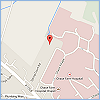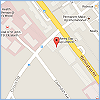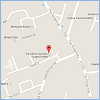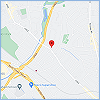What is irritable bowel syndrome and what are the symptoms?
Irritable bowel syndrome (IBS) is due to spasm and excessive contractions of the muscles of the bowel, and although this is painful it is not a serious condition and does not lead to any serious illnesses later.
Typical symptoms include:
- Crampy or colicky abdominal pain often felt in the lower part of the abdomen which worsens after eating and is sometimes relieved by passing wind or a bowel action.
- A change in bowel habit sometimes favouring a looser motion, sometimes a firmer motion and sometimes an erratic bowel habit alternating between the two.
- An urgent need to go to the toilet sometimes associated with difficulty in initiating evacuation or a sensation of incomplete evacuation.
- Bloating and distension of the abdomen as the day progresses and flatulence, occasionally with an increased passage of mucous.
- Feeling of an urge to repeatedly pass urine.
These symptoms seem to relate to periods of tension and when anxiety is lowered e.g. at night time and holidays there is often improvement in the symptoms.
What causes these symptoms?
The bowel is a muscular tube which contracts naturally to pass the contents onward. The rate of these contractions is regulated by higher subconscious input. When we are feeling stressed subconsciously the nerves cause an increase in contractions of the whole bowel. Within the small bowel the increased contractions seem to propel the food that we eat through the small bowel and some of the less digestible foodstuffs enter the colon. These include certain fibres and complex carbohydrates. The bugs which we all have within our colon are then able to ferment these foodstuffs, and in doing so produce gas which bloats the colon and causes wind. The bloating of the colon causes it to reflexly contract as well as the increased contractions from the nervous inputs. If these contractions are organised in a rhythmical fashion they propel the contents of the colon faster through the large bowel and there is less opportunity for water to be absorbed leading to a looser more frequent motion. If, however, the contractions are disorganised in a random fashion this can actually hinder the forwards progress of the colonic contents allowing more time for water to be absorbed resulting in a constipated stool. This is the basis of the erratic bowel habit sometimes alternating between constipation and loose motion in IBS. The repeated contractions in the last part of the bowel (rectum) gives the feeling of the need to pass motion frequently but sometimes the excessive contractions involving the pelvic floor muscles cause a failure of relaxation and difficulty in evacuation. Furthermore, the nerves to the bowel and urinary bladder come from a common pathway and thus an irritability of the bowel is often associated with an irritable bladder with contractions of the bladder muscle giving the sensation of a frequent need to pass urine.
How can I help myself?
It is clear that the symptoms arising from an irritable bowel occur from an underlying level of stress but also relate to our diet. It is, therefore, not surprising that there is not a ‘magic tablet’ will suddenly cure all of these symptoms since they are multi factorial and not subject to a single solution. It is a matter of learning to cope and control some of these symptoms rather than a total cure.
- Diet – these symptoms of bloating can be reduced by reducing the very fermentable fibre within our diet. Most people are aware that onions, garlic, baked beans, sprouts, cabbage and other ‘boiled vegetables’, apples and the like cause wind and this is because these types of fibres are easily fermented by the colonic bacteria, so avoid these and anything else that causes you to have wind. Some fibres are less readily fermented however, such as lettuce, cucumber, carrots, sweet corn, tomatoes, salads and many fruits, and therefore eat these instead so that you don’t become constipated. There does seem to be individual variation such that a particular fibre in one person may cause wind but not in another person. It is a matter of experimenting with your diet to determine which type of fibres do not suit your bowel. Often complex carbohydrates, such as starches and wheat can also be fermented by the colonic bugs. It is worthwhile attempting a trial period of avoiding foods containing flour (e.g. white and brown bread, pasta, shredded wheat cereals, cakes, pastries and biscuits etc) and eating rice or just a few potatoes. You can have wheat-free pasta and rye bread, and don’t worry about the small amounts of wheat used as a stabilizer in sauces etc. This should settle some of the bloating and wind, indirectly helping the spasm.If you suffer from a constipation predominant IBS (the minority of IBS sufferers), fibre and laxatives such as Lactulose are often prescribed and sometimes these can cause more windy symptoms, worsening the condition. From health food shops eg Holland & Barrett or high street chemists buy the following:
- Psyllium – take this less fermentable fibre twice a day
- Aloe vera – capsules, tablets or liquid to be taken three times daily
- Linseed – taken twice daily
- Ortisan fruit cubes – take twice daily
Take all of these together with plenty of fluids (at least 3 litres per day). Other alternatives are Dogadan Form Tea (tea bags available from Turkish stores eg Yasar Halim in Palmers Green) or sennacot for shorter periods.
- Anti-spasmodics – antispasm tablets can be taken but it is probably worthwhile trying more natural remedies such as peppermint (take peppermint tea and peppermint oil capsules (Colpermin) three times
daily at least – after meals; since eating naturally causes an increase contractility of the bowel, or when you feel the pain) and ginger which are natural antispasmodics. - Stress – it is clear that stress plays an important part in IBS. Unfortunately we all live in a stressful modern life and it is, therefore, impossible to live completely free of stress. However, it is a worthwhile exercise trying to make a list of things that you find stressful and ways in which you may reduce these anxieties. Examples might include:
- Trying to cram slightly less into your daily lifestyle.
- Slow down and leave plenty of time for journeys and meals.
- Take breaks away from the work place and try to occupy your mind in other ways.
- Find a quiet place to relax and wind down.
- Try various relaxation techniques (books available in the library advising these techniques).
- Sleep well and try to avoid tiredness and irritability.
- Try regular exercise or perhaps yoga.
- Other factors in IBS control – some people seem to be helped by excluding caffeine (coffee and tea, Cola and fizzy or gassy drinks) from their diet simply by having decaffeinated products. Other people report that avoiding very fatty foods seems to help. Clearly you cannot exclude everything in your diet and it does vary from person to person. If you suffer from a diarrhoea predominant IBS you can take Imodium or Lomotil which can be bought over the counter at pharmacies and will help to control the diarrhoea. Smoking also causes spasm of the bowel.Control of the symptoms of IBS therefore, relates to changes in diet and lifestyle and probably will not completely eliminate the symptoms but allow you to cope with some of the symptoms when the cycle of IBS is at its peak. You can also try other anti-spasmodic tablets (Mebeverine 135mg three times daily or Buscopan 20mg three times a day) which do not need to be prescribed (you can buy these yourself at the chemist along with the Colpermin above) and although ‘stronger tablets’ can be prescribed, it is worthwhile trying more ‘natural’ remedies and treatments first, and all of the treatments in this information leaflet are safe and healthy to continue using and will not ‘damage’ your bowel even if you choose to use them longterm.Download as PDF




